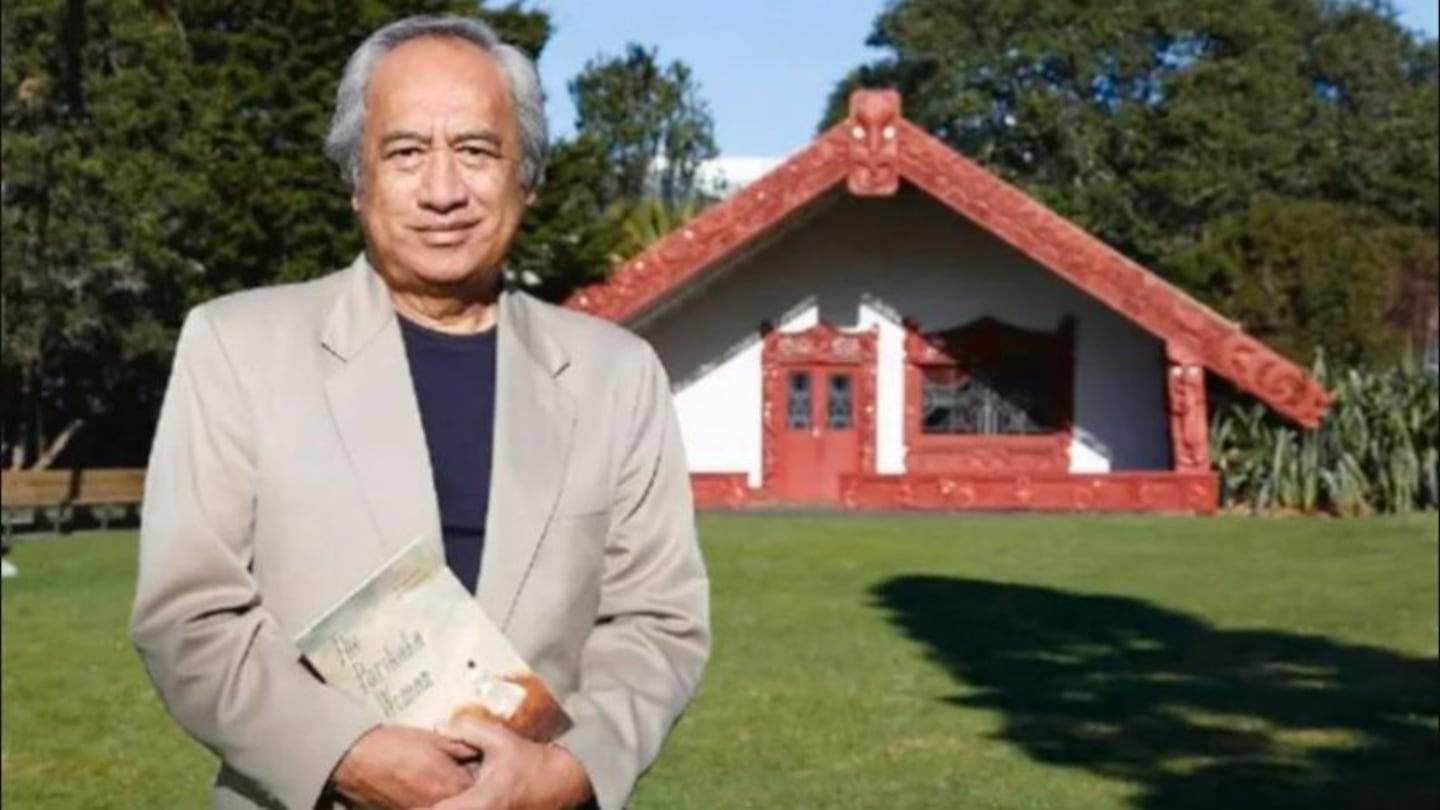The creative juices are set to flow for Witi Ihimaera, pictured at Waipapa Marae, University of Auckland, but this time it will be in te reo. Photo / Maja Moritz
By Gisborne Herald
New Zealand literary great Witi Ihimaera is planning to write a new book — one that has prompted him at age 79 to finally learn Te Reo Māori.
Raised in Waituhi, about 20 kilometres northwest of Gisborne, Ihimaera was part of a generation of New Zealanders discouraged from speaking Māori and reprimanded if they spoke it at school.
His interest in writing about Māori began as a teenager when he realised Māori didn’t feature in the books he read and that they were poorly represented by Pākehā authors.
He vowed to write stories about Māori as he knew them to be “not just because it had to be done but because I needed to unpoison the stories already written about Māori”.
His first story, The Liar, was accepted by the NZ Listener in May 1970 and marked the start of what would become a prolific writing career.
He had the distinction of being the first Māori writer to publish a book of short stories and a novel.
During the past 50 years he has produced a huge body of successful fiction and non-fiction works about Māori.
His first book Pounamu, Pounamu was published in 1972. His novel The Whale Rider became an acclaimed feature film.
Other key works are Tangi (1973), The Matriarch (1984), and Bulibasha (1994), all winners of the Wattie/Montana Book of the Year award, and Māori Boy (2015), winner of the Ockham non-fiction category.
He has won numerous other accolades. Last year, he was named as the New Zealand Society of Authors Te Puni Kaituhi o Aotearoa President of Honour for 2022-2023.
Notwithstanding the Māori focus of his work, Ihimaera never learned to speak te reo fluently and says the time has come for him to do so.
In a recent interview with TV One’s Te Karere programme, Ihimaera told reporter Kruze Tangira that he’d reached a point in his career where “the English language had been like a rope to me. It’s been that colonised language that I have been using to write my work”.
“I want to unlock the kupu (words) from my throat that I might begin to write in te reo.
“One of the books I want to write is a novel that is set in Hawaiiki so it involves Mātauranga Māori (Māori knowledge and engagement with the world). It involves pūrākau (a deeply spiritual story about the cycle of life).
“How can I go into that tūpuna mahi if I can’t kōrero with them psychically and spiritually and physically?” Mr Ihimaera said.
He wanted to learn the language not just for his upcoming writing pursuits, but also for his ancestors and family.
“And I reckon they’re probably saying ‘kua tata te wā’ — (it’s) about time’.”

